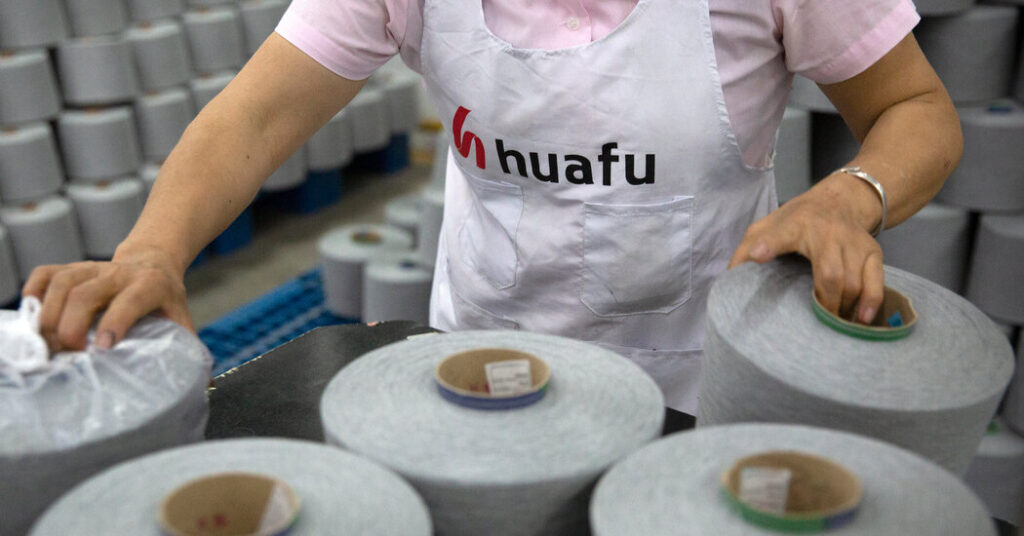The Biden administration said on Tuesday that it would block imports from more than three dozen Chinese companies, citing their alleged ties to forced labor in the Xinjiang region of China.
The administration’s move is the single largest batch of additions to a list of companies that are barred from bringing products into the United States because of concerns about human rights violations.
The action was taken under a 2021 law, the Uyghur Forced Labor Prevention Act, which prevents the United States from importing products that are made in whole or in part in Xinjiang, a far-western region of China where the government has detained and surveilled large numbers of minorities, including Uyghurs.
China denies the presence of forced labor in Xinjiang, but the U.S. government has said the Chinese government uses forced labor, mass detentions and other coercive practices to subdue the region’s predominantly Muslim ethnic groups, particularly the Uyghurs.
The 37 entities that were added on Tuesday to a special list created by the law include subsidiaries of a major supplier of critical minerals, Zijin Mining. The New York Times reported in 2022 that Zijin Mining had links with labor transfer programs in Xinjiang.
The additions also include one of the world’s largest textile manufacturers, Huafu Fashion, and 25 of its subsidiaries. It’s not clear which retailers Huafu currently supplies, but H&M previously said that it had an indirect relationship with a mill belonging to Huafu Fashion and that it would cut those ties.
Companies in real estate, mining, solar and cotton production were also added to the list. Altogether, they bring the list to 144 entities.
The Biden administration sees the 2021 Uyghur forced labor law as an important part of its legacy in countering unfair trade practices and discouraging certain problematic trade with China. Since the law went into effect, other governments, including in Europe and Canada, have taken steps to halt imports of goods made with forced labor, including products from Xinjiang.
Alejandro N. Mayorkas, the homeland security secretary, said that the additions demonstrate the administration’s “relentless fight against the cruelty of forced labor, our unwavering commitment to basic human rights, and our tireless defense of a free, fair, and competitive market.”
It’s not clear what approach the Trump administration will take toward enforcing the law. But the law passed with bipartisan support, and Senator Marco Rubio, the Florida Republican whom President-elect Donald J. Trump has chosen to be his secretary of state, was its primary author. Mr. Rubio has been a strong proponent of severing supply chains that involve forced labor in China.
A Homeland Security official said the Biden administration had set up a robust pipeline of companies it was investigating and researching that the Trump administration could pursue.
Xinjiang produces significant amounts of the world’s cotton, tomatoes and polysilicon, which is used in solar panels and semiconductors. In recent years, companies making flooring, cars, electronics and seafood have all discovered that they were sourcing products, parts or raw materials from Xinjiang.
Companies have increasingly attracted censure in the United States for ties to Xinjiang, but they’ve also been subject to backlash in China when choosing to sever those ties.
Late last year, the Chinese government said it was investigating PVH, the corporate parent of the Calvin Klein and Tommy Hilfiger brands, for allegedly taking “discriminatory measures” against products from Xinjiang. H&M and Nike have also faced criticism from consumers in China for breaking their ties.
